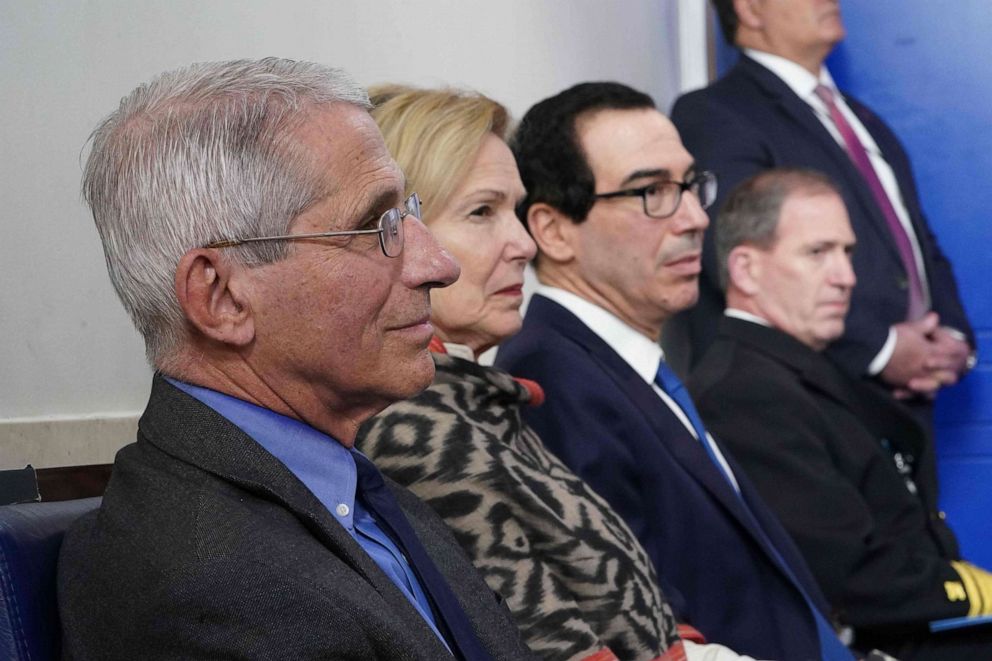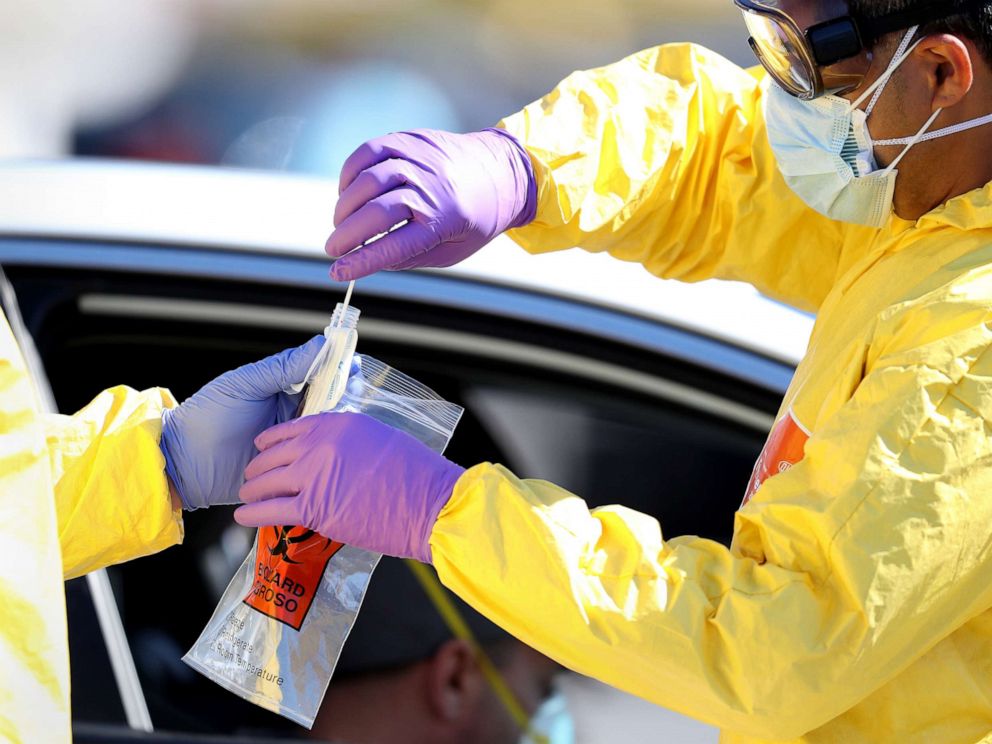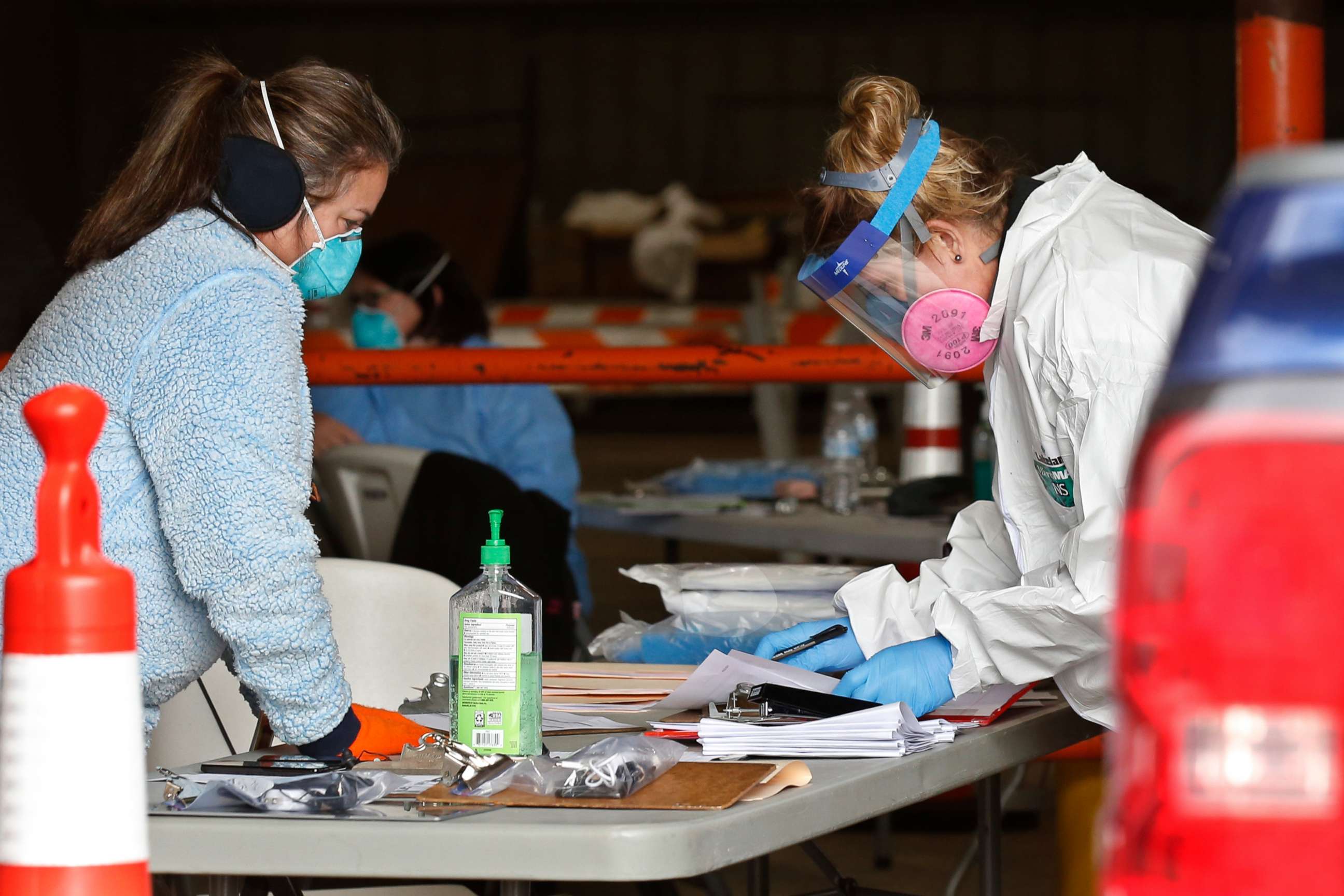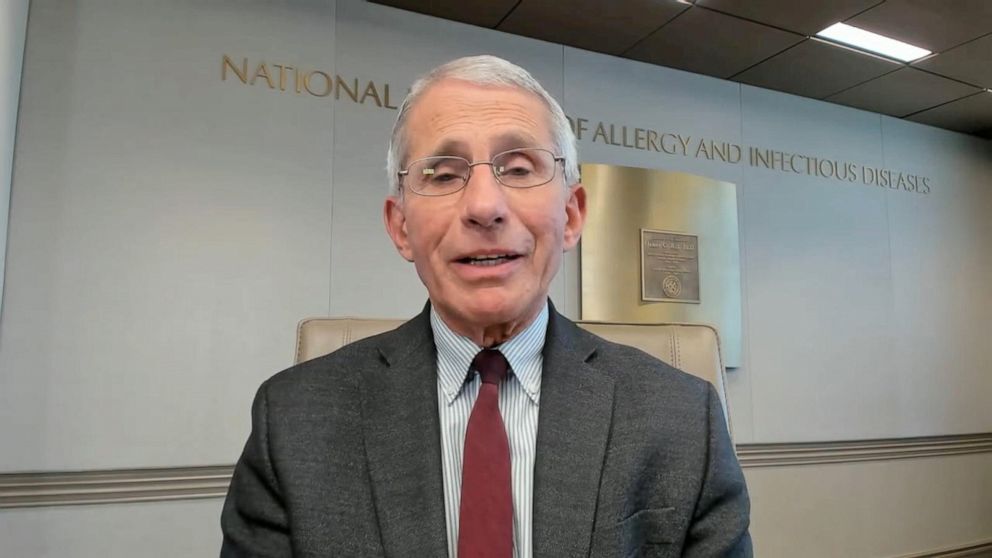Fauci tells David Muir US return to normal will not be like a 'light switch' turned on
Dr. Anthony Fauci told ABC News anchor David Muir that when it comes to the U.S. returning to normal after the COVID-19 crisis, "it's going to be different in different parts of the country, depending on a number of factors."
He also said there would likely be "some degree of modification" of behavior for citizens into the summer months.
"We need to be careful, David, to make sure that we don't talk about America in totality because there are so many different levels of outbreak and of involvement with this virus throughout the country. ... There will be some areas of the country which will really be much, much more attuned to and ready to be able to get more towards the normality than others," Fauci said during Wednesday's interview with the "World News Tonight" anchor.

Muir asked Fauci about what the "new normal" would look like as the U.S. approached May 1 and talks of reopening the country ramp up.
"The new normal ... in June, July, whatever, is really going to depend on a number of things, some of which we can influence and some of which we can't," said Fauci, a key member of the White House coronavirus task force and the nation's leading expert on infectious diseases. "It's going to depend on what happens with the virus."
Tune into ABC at 1 p.m. ET and ABC News Live at 4 p.m. ET every weekday for special coverage of the novel coronavirus with the full ABC News team, including the latest news, context and analysis.
He said that if the virus died down to a level that was very low and health officials could handle it easily with containment, the U.S. might be able to cautiously approach some degree of normality.
"On the other hand, if, as you start pulling back on mitigation, the virus resurges itself, you've got to respond to that. You've got to back up and go back to the kind of mitigation that has been able to control it. And that's going to be up to the virus, and how we respond. So, in many respects, it would be, you know, anywhere from presumptuous to impossible for me to say, 'This is what's going to happen in June.' We don't know. It's really going to depend on what happens with the virus, as we pull back on mitigation," Fauci said.
He cautioned again, however, against discussing reopening the U.S. as a whole due to the different levels of outbreak.

"I kind of refer to it as kind of a rolling re-entry. ... There's not going to be like, a light switch that you turn on and off and say, 'On this date, America will resume its normal activities,'" Fauci told Muir. "It's just not going to (be) uni-dimensional."
When asked by Muir what needs to happen in the U.S. in order for the reentry to occur, Fauci said, first, citizens and officials could not assume that there would not be any infections in the new normal.
"What you must be able to do is to have in place the capability of rapidly identifying by testing, getting someone who's infected out of the circulation, obviously taken care of if they need medical help if they could be handled at home, do contact tracing, do it in an efficient way where it means something," he said. "Not contact tracing many, many, many days after an individual actually is exposed."
What to know about coronavirus:
- How it started and how to protect yourself: Coronavirus explained
- What to do if you have symptoms: Coronavirus symptoms
- Tracking the spread in the U.S. and worldwide: Coronavirus map
While he could not say that there would be tens of millions of COVID-19 tests by May 1, so that U.S. families could feel confident about leaving their homes and going back out in public and reentering society, he said he was aware of an uptick in testing.
"We are doing extraordinarily better now than we were at the time when there really were some significant challenges.," he told Muir.
Fauci, who is the director of the National Institute of Allergy and Infectious Diseases, also spoke to Muir about the likelihood of a second wave of the coronavirus, the more commonly used name for COVID-19.
There's not going to be like, a light switch that you turn on and off and say, 'On this date, America will resume its normal activities.
He said that scientists still did not know everything about the virus and what it was capable of doing. Fauci said it was still unknown what percentage of people in the U.S. had actually been infected and were asymptomatic.
"It is entirely conceivable that we will see a rebound as we get into a seasonal situation, such as next fall or winter," Fauci said. "The fact that it can happen is just a reality. ... It very well may happen."
Fauci also said health officials in the U.S. did not know whether news reports out of South Korea, claiming that some people had fallen ill with the coronavirus twice, were reactivations or reinfections.
He called it a "challenge" for health officials to find out.

"The critical issue that's related to that ... is that when you are infected and you have an antibody, which is protein that essentially fights the virus, and you have a level of antibody in you, are you protected?" he said. "What is the relationship between the level of that antibody and your degree of protection? And what is the duration of the protection?"
He said that while a vaccine was still months away, he did hope that a treatment or therapeutic intervention would be available in the fall or winter.
"Obviously, when you're testing things that are unknown, you cannot guarantee it," he said, "but we're hoping that, with a number of interventions, be they compounds or antibodies ... we're hopeful, cautiously optimistic that we may have one or more of them that would provide some degree of health and therapeutic intervention."




